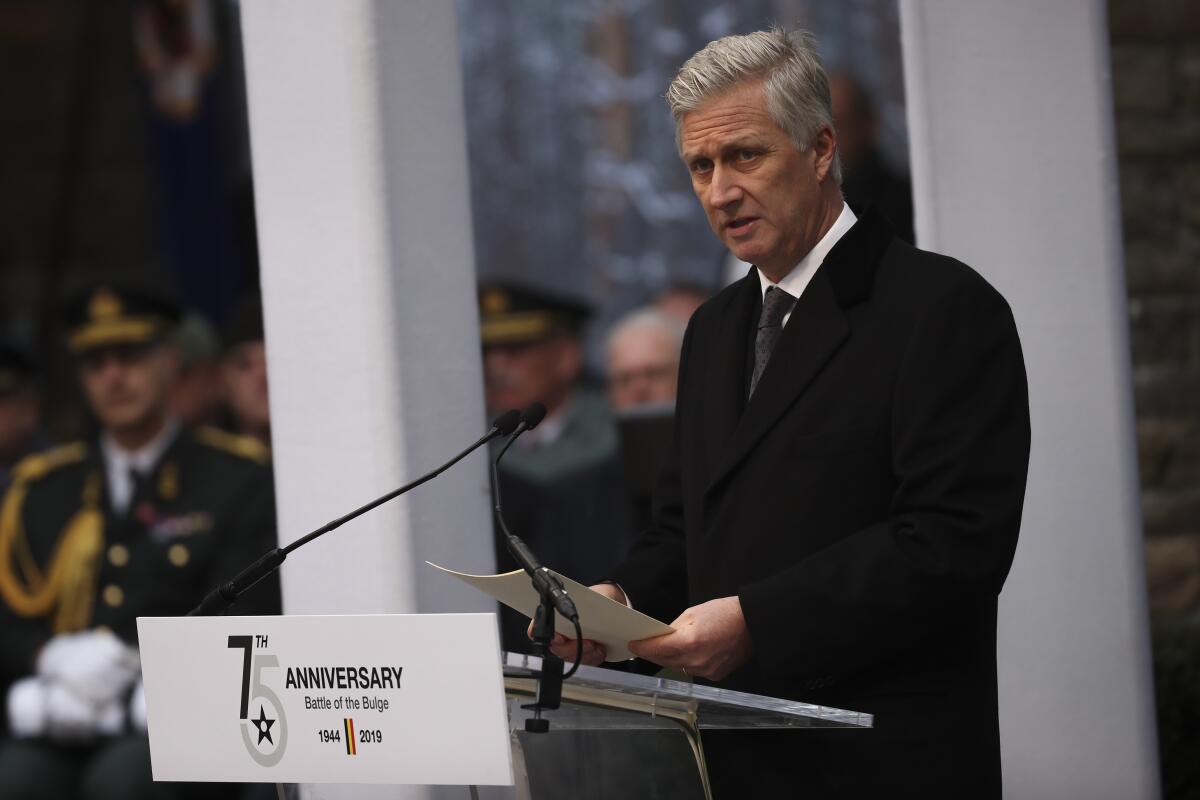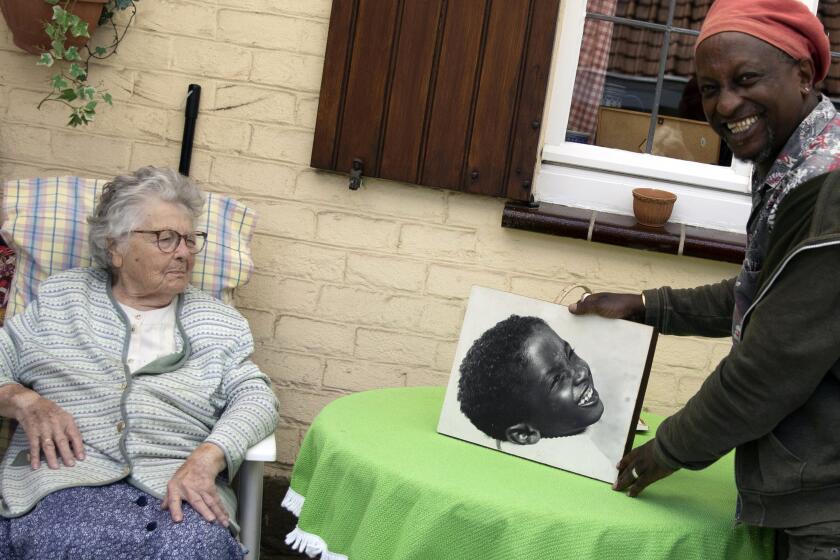Belgian king expresses regret for predecessor’s brutal colonial rule in Congo

- Share via
BRUSSELS — For the first time in Belgium’s history, a reigning king expressed regret Tuesday for the violence carried out by the former colonial power when it ruled over what is now the Democratic Republic of the Congo.
In a letter to the president of the DRC, Felix Tshisekedi, published on the 60th anniversary of the African country’s independence, Belgium’s King Philippe conveyed his “deepest regrets” for the “acts of violence and cruelty” and the “suffering and humiliation” inflicted on then-Belgian Congo.
“To further strengthen our ties and develop an even more fruitful friendship, we must be able to talk to each other about our long common history in all truth and serenity,” Philippe wrote.
Philippe’s letter was sent amid growing demands that Belgium reassess its colonial past. In the wake of the protests against racial inequality triggered by the death of George Floyd in the United States while in police custody, several statues of King Leopold II, who is blamed for the deaths of millions of Africans during Belgium’s colonial rule, have been vandalized, while a petition called for the country to remove all statues of the former king.
A bust of Leopold II is expected to be taken down from display later Tuesday in the city of Ghent following a decision from local authorities. Earlier this month, regional authorities also promised history course reforms to better explain the true character of colonialism.
“Our history is made of common achievements, but has also known painful episodes. At the time of the independent State of the Congo, acts of violence and cruelty were committed that still weigh on our collective memory,” Philippe wrote, referring to the period when the country was privately ruled by Leopold II from 1885 to 1908.
Monuments honoring figures from Belgium’s colonial era are coming under scrutiny in that country and elsewhere.
“The colonial period that followed also caused suffering and humiliation,” Philippe acknowledged.
Leopold ruled Congo as a fiefdom, forcing many of its people into slavery to extract resources for his personal profit. His early rule, starting in 1885, was famous for its brutality, which some experts say left as many as 10 million dead.
After his ownership of Congo ended in 1908, he handed over the central African country to the Belgian state, which continued to rule over an area 75 times its size until the nation became independent in 1960.
“I want to express my most deepest regrets for these wounds of the past, the pain of which is today revived by discrimination that is all too present in our societies,” the king wrote, insisting that he is determined to keep “fighting all forms of racism.”
Philippe also congratulated President Tshisekedi on the 60th anniversary of independence, ruing the fact that he was not able to attend celebrations to which he had been invited “given current circumstances” related to the coronavirus crisis.
More to Read
Sign up for Essential California
The most important California stories and recommendations in your inbox every morning.
You may occasionally receive promotional content from the Los Angeles Times.











